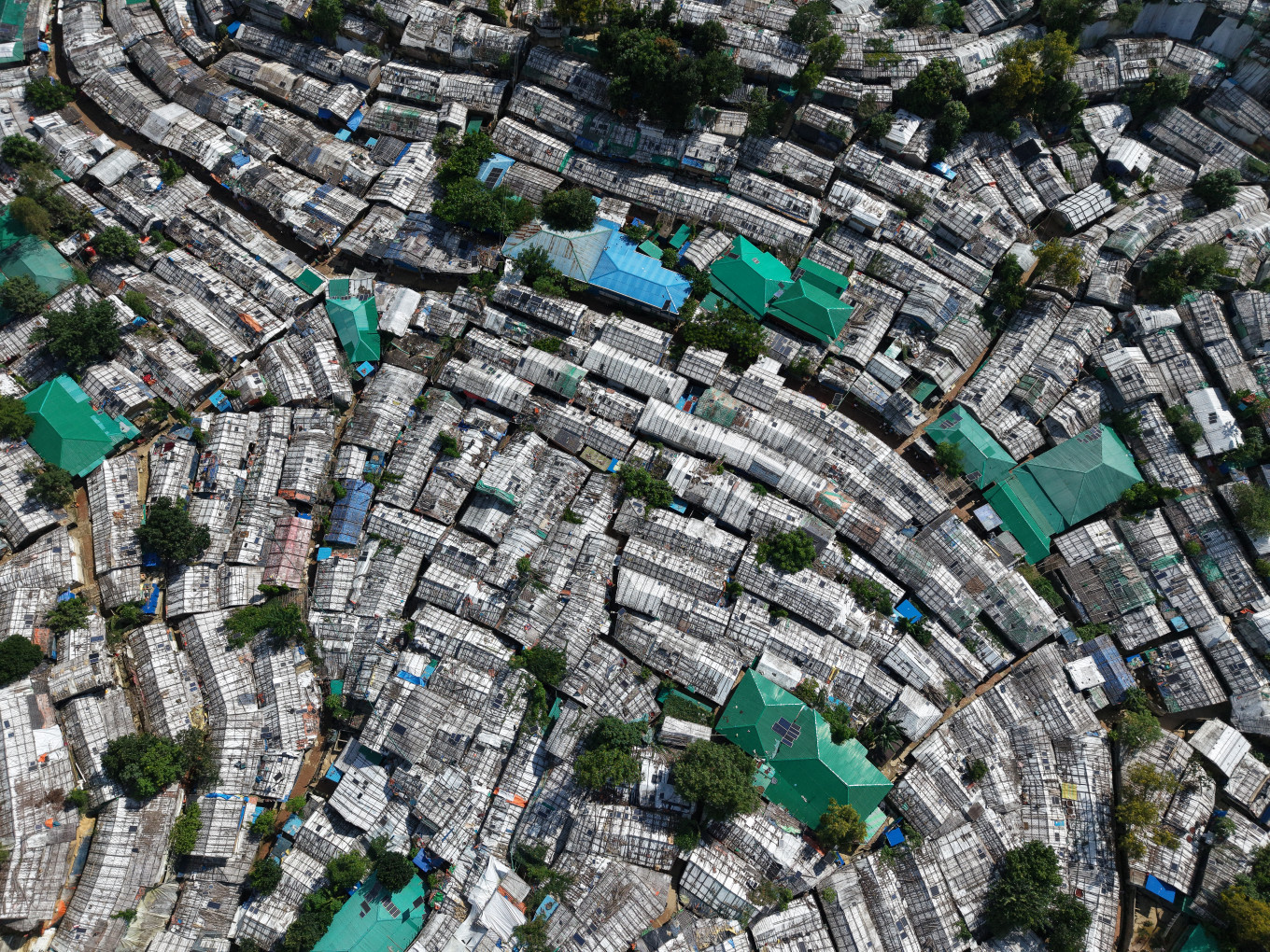Popular Reads
Top Results
Can't find what you're looking for?
View all search resultsPopular Reads
Top Results
Can't find what you're looking for?
View all search resultsHow the world can resolve the Rohingya crisis
Myanmar is fractured, the Arakan Army has little incentive to compromise without external guarantees, and the scars between communities run deep.
Change text size
Gift Premium Articles
to Anyone
T
he Rohingya crisis has for years been recognized as one of the world’s gravest humanitarian tragedies. For Bangladesh, it heavily impacts the nation's society, economy, and environment.
For Myanmar, it remains a decades-old, unresolved chapter of ethnic conflict. And for the international community, it is a man-made disaster that elicits sympathy but offers little room for resolution. Approximately 1.3 million Rohingyas took refuge in Bangladesh, all of whom have been eking out a life between temporary refuge and permanent statelessness.
Since August 2017, the political realities inside Myanmar, particularly the rise of the Arakan Army and the outbreak of a civil war, have cast a shadow of uncertainty over Rohingya repatriation. A High-Level Conference on the situation was recently held on the sidelines of the United Nations General Assembly.
Bangladesh’s interim chief adviser, Muhammad Yunus, seized the moment to shift the conversation from despair to resolution. He unveiled a seven-point proposal, remarkable not only for its clarity but also for its insistence that this crisis must be solved at its origin—inside Myanmar itself.
The world has failed because geopolitical rivalry takes precedence over humanitarianism. Global powers pursue their own interests in Myanmar, while its neighbors, caught between geographic proximity and domestic political sensitivities, have often opted for disengagement, reflected by their absence from the conference’s opening session.
It would be unjust, however, to let this crisis devolve into a proxy battlefield for competing powers. Before it is too late, Yunus urged global and regional players to find pragmatic solutions for safe and dignified Rohingya repatriation, addressing the issue as a humanitarian and regional political crisis.
At the heart of Yunus’s proposal is the principle that repatriation is the only sustainable solution. Continued international protection, he argued, is both costly and inadequate. Funding shortfalls are already shrinking support for the Rohingyas in Bangladesh’s camps, where over 30,000 children are born each year into lives without citizenship or mobility. Repatriation, though difficult, requires fewer long-term resources and restores the Rohingyas’ fundamental dignity of belonging to a homeland.
The seven points outlined by Yunus present a constructive roadmap: 1) Devise a practical roadmap for safe, dignified Rohingya repatriation; 2) Exert effective pressure on both the Myanmar military and the Arakan Army to cease violence; 3) Continue international support to stabilize Rakhine, including the presence of civilian monitors; 4) Support confidence-building measures to integrate Rohingyas into Rakhine society and governance; 5) Mobilize adequate donor contributions to fund the Joint Response Plan; 6) Pursue accountability and restorative justice for past atrocities; and 7) Dismantle the narco-economy and combat cross-border crime.
While none of these steps would resolve the crisis overnight, implemented in concert, they would align moral obligation with cold-eyed political realism—a strategy that is both humane and pragmatic.
For the UN, the Rohingya crisis is a test of credibility; it cannot remain a “side event” at global gatherings while louder wars dominate the stage. The UN must act decisively.
First, appoint a special envoy. The Security Council should appoint a special envoy with the authority to engage directly with Myanmar’s military, the Arakan Army, and other regional stakeholders. Mediation is futile without an empowered messenger.
Second, form a joint monitoring presence. The UN should establish a joint monitoring mission, including ASEAN members, in Rakhine to supervise the safe and dignified repatriation process.
Third, scale up UN High Commissioner for Refugees’ expertise. The UNHCR must move beyond rhetoric and scale up its technical expertise and financial lifelines, not just for the teeming camps of Bangladesh but also for the eventual rehabilitation of Rakhine itself.
The UN needs to leverage China, a uniquely influential actor with leverage over both the Myanmar military and the Arakan Army. Bangladesh, with UN support, must step up diplomatic engagement with Beijing for both a ceasefire and repatriation.
Meanwhile, the United States and European Union must resist the temptation of mere symbolism. While sanctions have their place, they risk pushing the affected nation toward opposing geopolitical blocs. Instead, they should commit resources to humanitarian assistance and support confidence-building projects inside Myanmar.
Other Muslim-majority states like Saudi Arabia, Turkey, and Malaysia must transition their role from words to wallets. Funding the joint response plan is not charity; it is an investment in stability.
Bangladesh deserves more than mere sympathy; it has been bearing a substantial burden at the cost of its social and economic stability. If world leaders continue to neglect this crisis, the impact will not only harm the refugees but also destabilize a nation critical to South Asia’s balance.
No one should be naïve. Myanmar is fractured, the Arakan Army has little incentive to compromise without external guarantees, and the scars between communities run deep. But a silent stalemate is corrosive.
History shows that enforced displacement breeds despair and extremism. The Rohingya crisis is therefore a litmus test for the rest of civilization—an ordeal for the international community to prove if it can still act collectively for a moral cause in this age of division.
The choice is stark. Bangladesh has made its position loud and clear: it prefers solutions and cooperation. The world’s response will decide whether this crisis becomes another endless scar or a success story of cooperative diplomacy.
The time for decisive action is now.
***
The writer is a political and defense analyst based in Bangladesh. He can be reached at writetomahossain@gmail.com.











